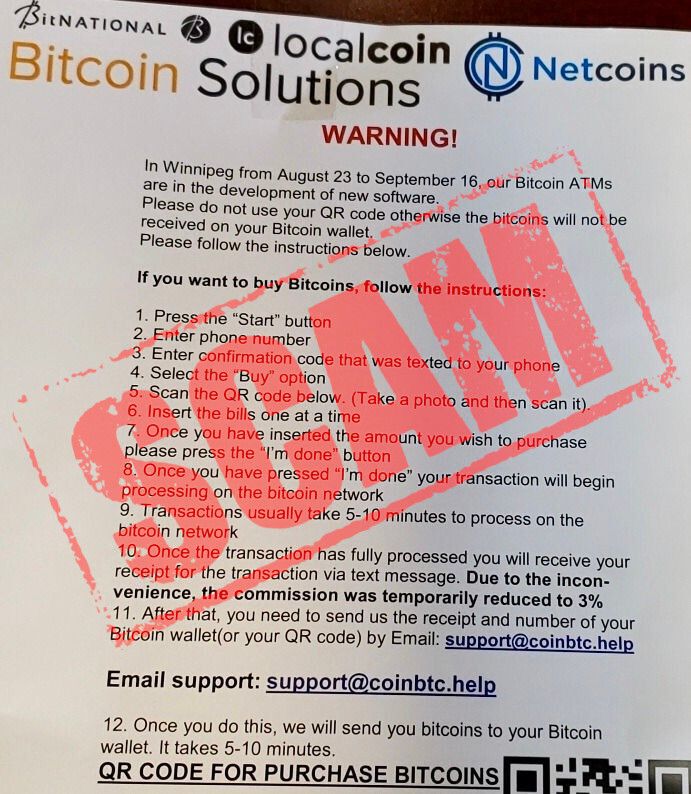Tips for Protecting Yourself from Crypto Scams
The sad truth is that even the added security benefits of digital currencies don't make them immune to the tricksters and con men who target traditional fiat money. When you decide to invest in cryptocurrency, you need to be aware that Bitcoin investment scams, cryptocurrency frauds, and fakes are all facts of life. Some of the techniques scammers use to part you from your crypto have been around for ages, while others are unique to the Internet Age. A potent reminder of this came with the recent Twitter hack, which saw celebrity social media accounts taken over by attackers who gathered the equivalent of USD 125,000 in Bitcoin from hundreds of users. Luckily, Invity is here to help you buy Bitcoin instantly—and safely. So we want to share some of the most common crypto scams and what you can do to protect yourself.
Use common sense
The Twitter hack mentioned above is a good case study of dos and don'ts when it comes to basic scam awareness. First, don't trust offers from random people—even if that random person appears to be a high-profile individual or company. Not only is it likely that a person you don't know simply wants to make money off of you, it's also possible that the famous figure you think you're interacting with on social media isn't who they say they are—impostor accounts are easy to create, and it's easy to overlook a blue "verified" checkmark. And even if a tweet is coming from a verified account, celebrities aren't immune to tricks and bad deals either—take any investing advice with a grain of salt.
Crypto scammers also use familiar fraud techniques. Take advance-fee scams, which many associate with Nigerian princes, where someone asks for a small fee up front in order to guarantee a large payout later. Money laundering also isn't uncommon: a financier forwards money to a partner, who buys crypto with those funds without knowing where the money originally came from. And of course, pyramid and Ponzi schemes, which hinge on bringing ever more people into an organization, are recurring favorites. Also keep in mind that Bitcoin ATM scams are fairly easy to pull off on cryptomats that aren't closely monitored.

What distinguishes all of these situations is some level of incomplete information, evasiveness, or just plain weirdness. That's why the most basic advice is to follow your gut: if something sounds strange or too good to be true, it usually is. But common sense only goes so far, and there are also concrete steps you can take to help avoid bad situations in the first place.
Spoofing and phishing: impostor websites and emails
It's not just Twitter or social media accounts that can be faked: full sites can be too. For example, when trying to visit your bank's website, bankofamerica.com, a simple typo could take you to bankofamerican.com...spot the difference? Scammers can easily recreate a lookalike site at this address, but the login information wouldn't show you your bank account: instead, it would go directly to someone to use for malicious means. Risks of a website address being switched only grow if you come to a site by clicking a link.
Phishing is similar and involves emails that appear to be from a reputable company; perhaps by offering excellent deals or inserting bogus links, they hope to gather personal information like account passwords or, worst of all, your crypto wallet's private key. Spear phishing is a personalized phishing attack, usually using your information that has been stolen or sold on the black market. Telltale signs of sites or emails that aren't genuine include frequent misspellings, unprofessional designs, and outdated or just plain wrong logos.

When you're surfing the web and decide to buy some crypto, we recommend visiting your favorite exchange using the following steps.
- Only visit crypto-buying websites by typing them carefully into the navigation bar. This also means not bookmarking your site of choice, as these can be changed without you noticing.
- Verify that the URL you're taken to is the one you typed and the one you want.
- Check that the "http" part of the address also has an "s" at the end—this stands for "secure".
So to visit Invity, you'd want to ensure that you're visiting https://invity.io each and every time you want to make a crypto purchase.
Unfortunately, websites don't have to be based on existing sites to be dangerous: there are entire "exchanges" that won't give you anything in return when you try to exchange your fiat or crypto for more coins. Always do your research before purchasing somewhere for the first time; this database of known crypto exchange scams is a good place to start.
Fake coins
Proposing a new coin as an alternative to the market leaders is also a frequent moneymaking scheme. People offering new coins might say that Bitcoin's time has passed or that their coin does what Ether does, but better. The world of crypto welcomes innovation, sure, but attempting to dethrone Bitcoin is like introducing a new US currency to replace the dollar—maybe not impossible, but astronomically unlikely.
For new cryptocurrencies with more modest goals, avoiding scams comes down to research. Uncover who is supporting the effort, read the whitepaper to understand the coin's tech and business cases, and see what people are talking about on crypto news sites and social media. And if you do decide to invest your money in an upstart, be prepared to lose it all (even if it's legit!).
Practice good crypto security!
Even if you avoid con artists, modern life makes it easy for your information—and your crypto—to be stolen without you even knowing it. So once you've found a reputable crypto exchange, you need to practice smart crypto safety whenever you invest in Bitcoin or your favorite altcoin. We have a full article on security, but the top tips are to keep your keys private and to invest in an offline hardware wallet like the Trezor Model T.
Scams have always existed and new ones pop up every day, so the best way to avoid them is to stay knowledgeable about the crypto ecosystem—luckily crypto users often look out for one another by pointing out the latest scam attempt. You can also trust Invity to carefully vet each of the exchanges featured on our site, ensuring that they're above-board—just one of the many features that makes Invity the safest way to buy cryptocurrency!
Cover photo: Bitcoin (BTC) Scam by Comparitech.com, licensed under CC BY 2.0.